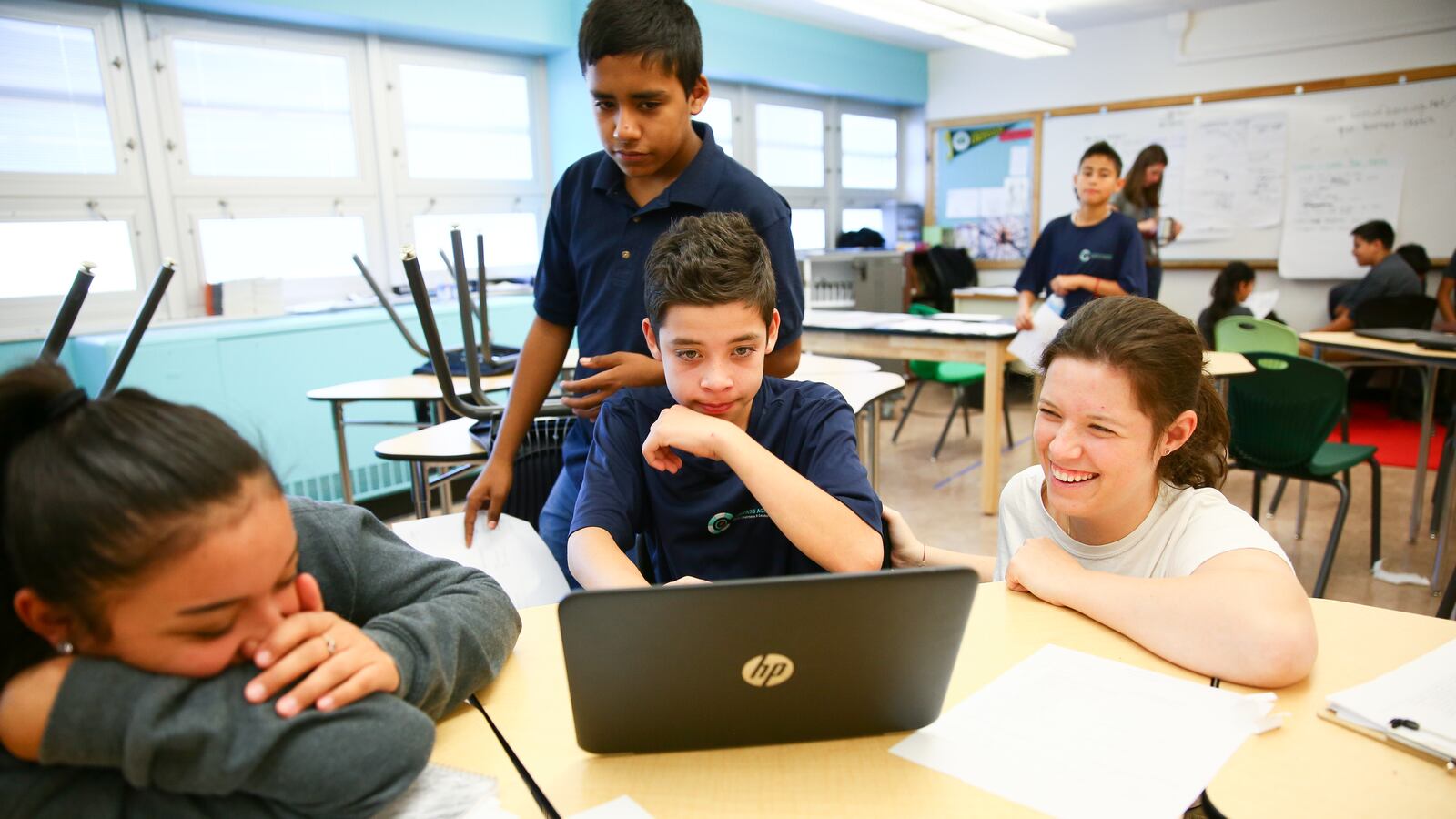A Denver charter middle school devoted to bilingualism and founded with help from City Year, an AmeriCorps program that deploys young adults to mentor and tutor at-risk students, has won a $2.5 million grant to help design and launch an innovative high school model.
The money is from the XQ Institute’s Super School Project, an initiative backed by Laurene Powell Jobs, the widow of Apple’s Steve Jobs. XQ aims to “reimagine high school” by funding novel ideas. Last year, it gave $10 million each to 10 schools across the country.
Compass Academy in southwest Denver applied for one of those big grants. It didn’t win, but XQ gave the school a second look as part of an effort to bring more diversity in geography and school type to its “super schools,” said Monica Martinez, senior school support strategist for the California-based XQ. Compass will receive $2.5 million over the next five years.
“Their idea stood out to us,” Martinez said.
That idea is to pair personalized, community-based learning — dance classes at local studios, science classes at local hospitals — with the type of social and emotional support City Year corps members provide, such as checking in with kids who were absent the day before.
“There’s joy and love in this building,” said executive director Marcia Fulton. Compass students, she said, “feel that somebody understands, and they feel worth.”
Compass also aims to have every student graduate with a seal of biliteracy, a new credential that proves to colleges and employers they can communicate in at least two languages. That goal, Fulton said, was born of a desire expressed by families in the community.
The school opened in 2015 with just sixth grade. When classes begin again next week, Compass will be a full middle school with more than 300 students in sixth, seventh and eighth grades. Last year, 98 percent of students were students of color, 96 percent were eligible for subsidized lunch and 64 percent were English language learners.
Academically, Compass has struggled. Its first year, 14 percent of sixth-graders met or exceeded expectations on state math tests and just 8 percent met that bar in English. The school’s academic growth scores, which measure how much students learned in a year compared to their academic peers, also lagged behind school district averages.
XQ didn’t take the school’s test scores into account, Martinez said. The XQ grants, she said, “are based on a vision and an idea, and Compass was the same way.”
Fulton said the school “did not land where we wanted to land” on the state tests. But she said Compass has made shifts in its scheduling, staffing and approach that she hopes will drive higher academic achievement going forward. The school is currently rated “red,” the lowest category in Denver Public Schools’ color-coded school rating system.
“When you’re lifting up so many powerful components of design, it takes time,” Fulton said. “The funding is about an acknowledgement of the path we’re on. … We are being supported to say, ‘Keep doing what we know is important for all learners in the community.’”
Compass’s charter is for sixth through 12th grade. But Compass does not yet have a building for its high school. The Denver school board voted in 2015 to place Compass’s middle school in underutilized space on the Lincoln High School campus, a controversial decision that drew intense pushback from some Lincoln students, parents and teachers.
Compass has not asked DPS for space for its high school. In fact, Fulton said, the Compass board of directors has not yet decided when the high school will open. She said the board is “committed to identifying and investing in a private facility.”
Earlier this week, 13-year-old student Davonte Ford was at Compass, helping teachers set up their classrooms before the start of school. The rising eighth-grader came to Compass last year from a school where he said he “used to get in a lot of physical altercations.”
“I used to get frustrated sometimes,” he said. “If I got frustrated, I had no one to talk to.”
But at Compass, Ford said, it’s different.
“At this school,” he said, “I have someone to help me.”

